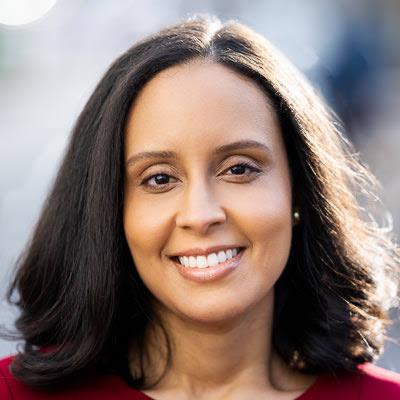
This blog is part of a series featuring interviews with patient advocates. It was written by Eli Lopez, an attorney in NYC and the proud mom of a two year old daughter and five year old son. As a BRCA1 mutation carrier, she decided to undergo a preventative double mastectomy in 2019. She is passionate about helping others facing similarly difficult choices, particularly those who face a lack of information about their options in the Latino and Black communities.
How did you learn about BRCA mutations and discover you are a carrier?
I learned about it when accompanying my mom to one of her doctor’s appointments. That doctor recommended that we undergo genetic testing based on our strong family history of breast cancer on my mother’s side of the family. I saw a genetic counselor and had a blood test that determined that I had the BRCA1 mutation.
How did this make you feel? What actions did you take?
I expected to test positive for the mutation, so it did not come as a surprise to me when I learned I had it. I immediately started surveillance alternating between mammograms and breast MRIs every 6 months, and had conversations with several family members so that they would become aware that this is something they should consider getting tested for as well. Soon after I finished breastfeeding my daughter, which ended up being almost 10 years after I learned about my mutation, I had a preventative double-mastectomy and reconstruction.
What kind of support and resources were available to you during the early stages of your BRCA journey?
I've connected with several amazing women who've been on similar journeys and who have selflessly helped me along the way - they've helped me find great doctors, therapists, helped me figure out what to wear post-surgery, you name it! Special shoutout to Erika Stallings (my first BRCA friend - she has really been there for me and I probably currently see all of her doctors) and Kristen Carbone (CEO of Brilliantly, a startup that helps women who've been impacted by breast cancer).
What do you wish had been available to you? Or what do you wish you had known?
I wish I had done physical therapy prior to and immediately after surgery. It's been extremely helpful now, and perhaps some of the physical sensations I felt in the early stages post-surgery could have been mitigated. I also wish I had known that I would be able to access a toolkit of healthy coping mechanisms for the anxiety that I felt right before and after surgery. It would have made me feel better to know that things would get better.
How have your feelings about being a mutation carrier changed over time?
After I had kids, I became more anxious about having the BRCA1 mutation, because of my strong desire to be around for my kids and my fear of not being able to. But with time, I’ve been slowly turning this anxiety into action by consistently making healthy choices for my physical and mental wellbeing.
Have you faced any particular obstacles on your journey?
Yes, some family members expressed that having a preventative mastectomy was too extreme and would be something I’d regret. Another challenge was that I decided to undergo IVF in order to prevent passing on my mutation to my daughter. I am so grateful that I had the privilege of doing this, but there are ethical considerations that made some friends and family members question my decision. Also, the IVF process itself was challenging at times because of all of the injections, doctors’ appointments, and my outside obligations at home and at work.
How have your experiences impacted your family or your community?
I’ve served as a resource to family members and others who’ve had questions about my (excellent) doctors and what it feels like to have undergone a double mastectomy without a cancer diagnosis and having two young kids at home. It has allowed me to be vulnerable in a way that I never expected. Although I wish I didn’t have this mutation, it has connected me to some wonderful people whom I wouldn’t have met otherwise and has allowed me to be more intentional about enjoying the present moment.
Why is sharing your experience important to you?
Because knowledge is power, and this type of information can help improve and possibly save lives.
Anyone can have a BRCA1 or BRCA2 gene mutation. Take a quiz to learn your risk.
Learn more about the Basser Center's LATINO & BRCA initiative to help raise awareness, provide education and resources, and build community for the U.S. Latino community around BRCA-related cancers.
Opinions of the Basser Young Leadership Council members are their own personal opinions and do not necessarily represent those of the Basser Center.